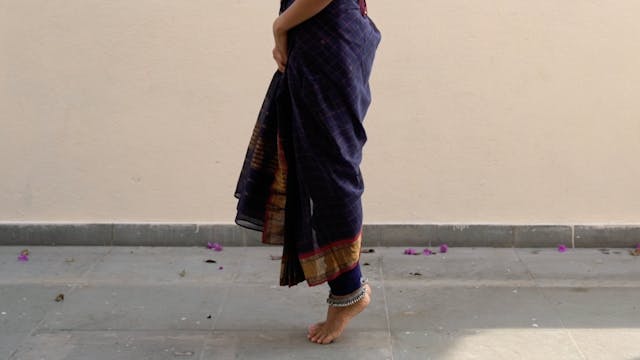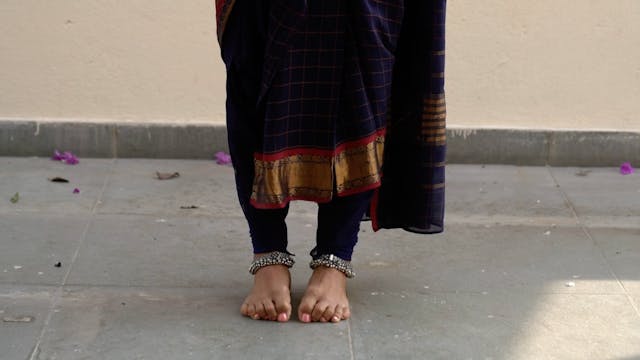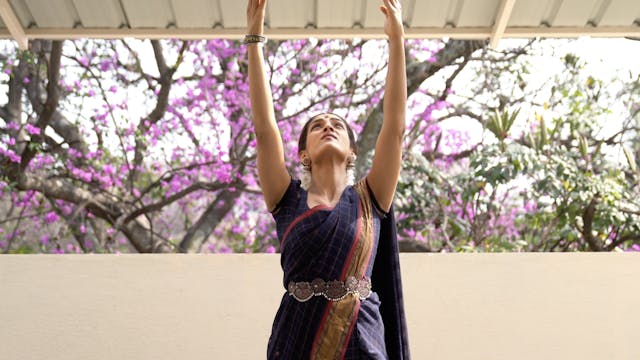Gulphā bheda Shloka
Playlist 35
•
14s
The Ankle is considered one of the Upāngas, or minor limbs according to the Sangīta Ratnākara.
The movements of the ankle are important in pure dance and in emotive contexts.
Please refer to the Shloka below for pronunciation. Please note that the separate movements of the head when put together in a Shloka form 'Sandhis', or compound words in the Sanskrit language. Words like 'ca', 'thatha', mean "and", "also". The separate words for each movement are also given below the shloka.
Gulphāvanguśta samslaśta antaryātau bahirmukhau
Mitauyuktau viyuktau ca pañcada sthanakadiśu
Gulphāvanguśta
samslaśta
antaryāta
bahirmukhā
Mitauyukā
viyuktā
Up Next in Playlist 35
-
Pārśni bheda Shloka
The heels are considered one of the Upāngas, or minor limbs
The movements are used not only for the precise control in the execution of Nritta but also to communicate meaning in the context of gesture.
Please refer to the Shloka below for pronunciation. Please note that the separate movements ...
-
Thala bheda Shloka
The soles of the feet are considered one of the Upāngas, or minor limbs.
The movements are used not only for the precise control in the execution of Nritta but also to communicate meaning in the context of gesture.
Please refer to the Shloka below for pronunciation. Please note that the separat...
-
Bāhu bheda Shloka
The arms considered one of the Upāngas, or minor limbs.
The movements are used primarily to communicate meaning in the context of gesture and also clear articulation in dance or nritta.
Please refer to the Shloka below for pronunciation. Please note that the separate movements of the head when...


